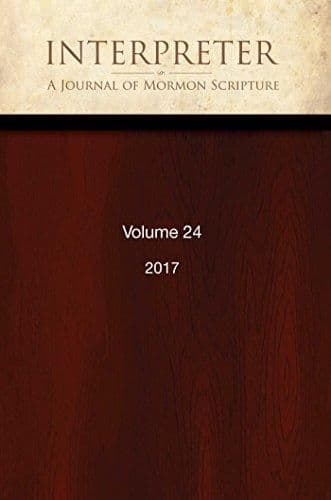Journal
The Book of Mormon Versus the Consensus of Scholars: Surprises from the Disputed Longer Ending of Mark, Part 2

Title
The Book of Mormon Versus the Consensus of Scholars: Surprises from the Disputed Longer Ending of Mark, Part 2
Publication Type
Journal Article
Year of Publication
2017
Authors
Lindsay, Jeff (Primary)
Journal
Interpreter: A Journal of Latter-day Saint Faith and Scholarship
Pagination
325-365
Volume
25
Abstract
Following the account of the ministry of Christ among the Nephites as recorded in the Book of Mormon, Christ gave a charge to His New World disciples (Mormon 9:22–25). These words are nearly like the commission of Christ to His apostles at the end of the Gospel of Mark (Mark 16:9–20). According to the general consensus of modern Bible scholars, Christ did not speak those words; they are a later addition. If so, this is a problem for the Book of Mormon. Fortunately, recent modern scholarship offers compelling reasons for overturning the old consensus against the longer ending of Mark. Some of the factors from modern scholarship that indirectly help overcome a potentially serious objection to and apparent weakness in the Book of Mormon also help us better appreciate its strength as we explore unifying themes derived from an ancient Jewish perspective. Part 1 of this two-part series looked at the evidence for the unity of Mark and the plausibility of Mormon 9:22–25. In Part 2, we examine further Book of Mormon implications from the thematic evidence for the unity of Mark.
Subject Keywords
Bibliographic Citation
Terms of use
Items in the BMC Archive are made publicly available for non-commercial, private use. Inclusion within the BMC Archive does not imply endorsement. Items do not represent the official views of The Church of Jesus Christ of Latter-day Saints or of Book of Mormon Central.